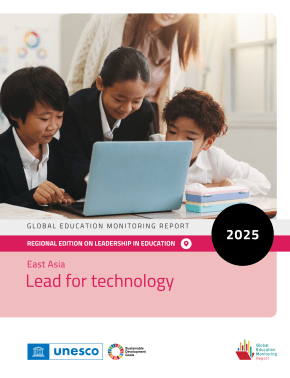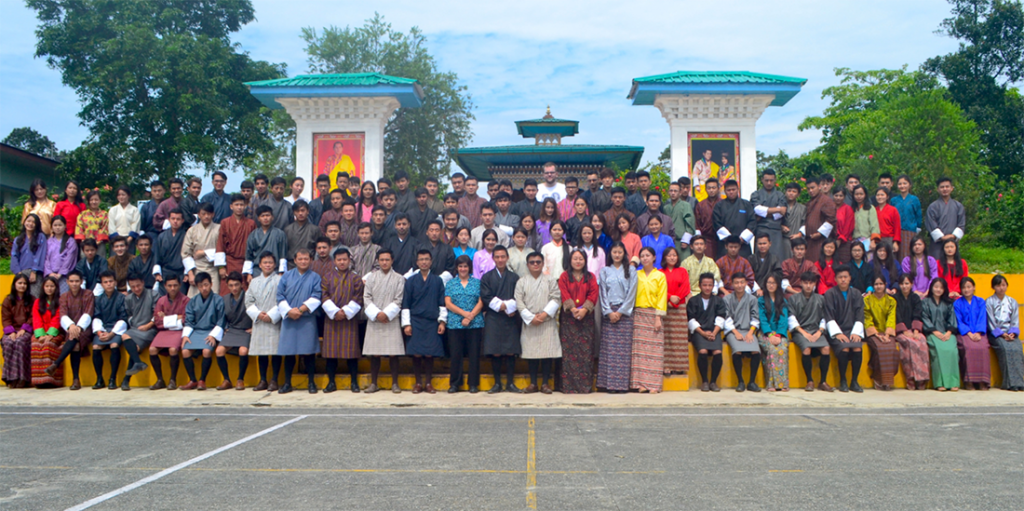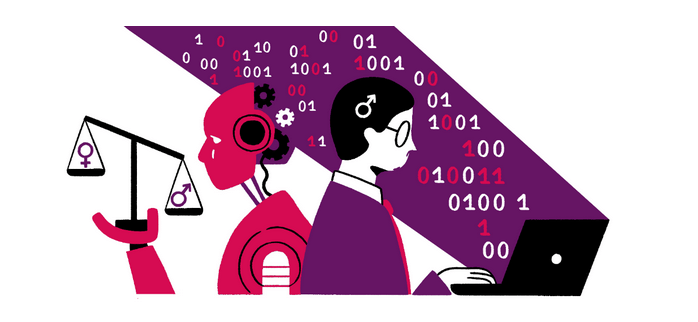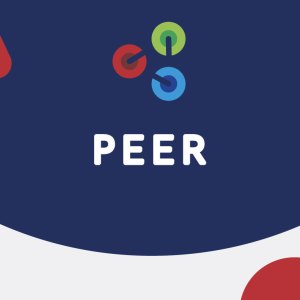Today marks the launch of the East Asia regional edition of the 2024/5 Global Education Monitoring (GEM) Report series on leadership in education, Lead for technology. It builds on the foundations of the 2023 GEM Report on technology, delving into the crucial intersection of these two themes in a region that is a global hotspot for digitalization in education.
In a world increasingly driven by technology, governments in East Asia are trying to harness digital innovation for learning. Schools are adapting. Systems are shifting. This report reminds us that at the heart of this transformation lies the indispensable leadership role of education officers, principals and teachers.
East Asia: A digital vanguard
East Asia stands as a compelling case study for digital transformation in education. China, Japan and the Republic of Korea are rapidly adopting artificial intelligence and advanced digital platforms to reshape learning experiences. From China’s widespread digital management platforms to Japan’s accelerated one-device-per-student target and the Republic of Korea’s rollout of AI-powered textbooks, these countries are envisioning education systems where technology facilitates more personalized, collaborative, and accessible learning.
The unsung heroes: Education leaders at the helm
Crucially, this report highlights the evolving and increasingly complex role of education leaders at the system and school level, which is nevertheless often overlooked. The discourse on digital transformation has predominantly centred on issues such as infrastructure or content. But no transformation can take place without a culture shift as well, and such a shift cannot happen without empowered and capable education leaders.
Education leaders are often seen as just administrators, as the 2024/5 report showed. This would significantly downplay their role in digital transformation. Local education officials are needed to ensure the coherent implementation of technology-led reforms, just as any other reform. In East Asia, such system leaders allocate funds to schools for digital services and products; identify schools and principals that can champion the reform, and provide feedback to the central government.
School principals need to take actions encompassing everything from procurement and cybersecurity to pedagogical innovation and student well-being. They are the ones ultimately entrusted with creating a digital culture in their institutions, ensuring the professional development of teachers and selecting the right resources for their specific school needs. In East Asia, this expanded mandate is increasingly recognized in digital strategies across the region.
Teacher leaders are also being marked out in emerging strategies, the new regional report shows. A distributed leadership model is essential for ensuring digital transformation resonates throughout the school community.
Building a collaborative ecosystem of support
For school leaders to implement an ambitious national vision, however, they need policy coherence, clear guidance, and sustained support. This can range from the development of nationwide learning management systems, robust guidelines for safe technology use, and the provision of specialist staff to support schools in managing digital infrastructure.
Fostering a culture of collaboration, both between the central, local and school levels and within schools, is another indispensable element for sustainable change. Communities of practice, peer exchanges, and strategic partnerships between local education offices allow the sharing of experiences and shape fit-for-purpose digital education policies.
Investing in leadership for the digital future
Finally, effective leader selection and training programmes are needed to navigate the complexities of this digital transition. Country profiles on the GEM Report’s PEER website show that all three countries examined in this report have invested in training for new principals, updated teacher competency frameworks to include AI use, and provided ICT preparation courses for future administrators. This holistic approach to professionalization recognizes that leadership skills, including negotiation and coordination, are as essential as technical knowledge.
A call to action
This report, a collaborative effort between the GEM Report, Beijing Normal University, Sophia University, and the Korean Educational Development Institute, synthesizes the rich experiences of China, Japan, and the Republic of Korea. It offers actionable insights and recommendations that can inform and inspire digital transformation efforts globally.
- Read the report
- Read the recommendations
- Read the country case studies
- Share the social media resources











